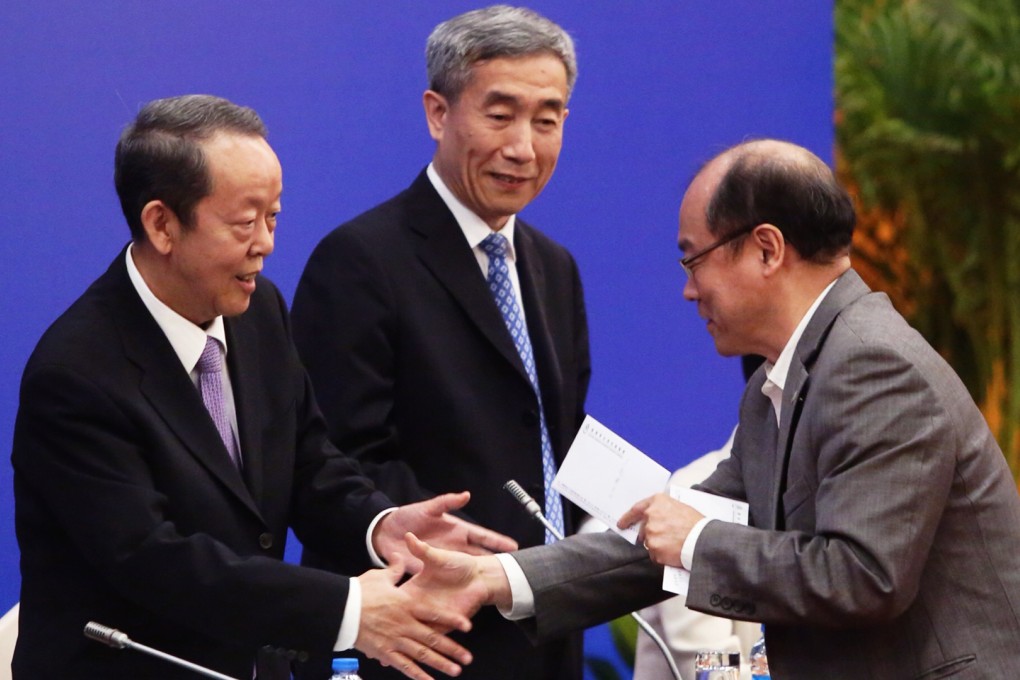Beijing officials get tough with pan-democrats over Hong Kong electoral reform stance
Beijing officials warn lawmakers they will be judged by their stance on electoral reform

The message from the three top Beijing officials during their meeting with pan-democratic lawmakers in Shenzhen yesterday was crystal clear: how they vote on the proposal for the 2017 chief executive election will be the touchstone on whether they support "one country, two systems" - and their political futures are at stake.
Even before pan-democrats boarded cross-border coaches yesterday morning, it was already a foregone conclusion their talks with mainland officials in charge of Hong Kong affairs would do little to bridge differences.
The writing was already on the wall when Basic Law Committee vice-chairman Zhang Rongshun told a Basic Law seminar in Shenzhen on May 20 there was "no room for amendment" to Beijing's framework on electoral reform and in the Hong Kong government's package.
The strong words from Basic Law Committee chairman Li Fei, Hong Kong and Macau Affairs Office director Wang Guangya and liaison office chief Zhang Xiaoming yesterday virtually dashed any hope of last-minute concessions from Beijing. The stance of the three top mainland officials in charge of Hong Kong's affairs during the four-hour talk and the post-meeting press conference was exceptionally tough.
During a meeting with 10 pan-democratic lawmakers in April last year, mainland officials tried to show a willingness to continue dialogue with pan-democrats but firmly stuck to their position. The relatively cosy atmosphere indicated Beijing's willingness to engage in further dialogue over how to elect the chief executive by universal suffrage in 2017.
But Beijing's stance turned tough in August, when it set down the restrictive framework, under which Hong Kong must choose from two or three candidates approved by the majority of a 1,200-member nominating committee when it elects its leader by "one man, one vote" for the first time in 2017.